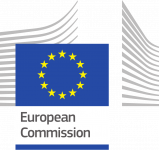From 2012, the European Bee and Pollination Week, informally named "Bee Week", was held every year in the European Parliament in Brussels. In 2021, the event was renamed to EU Pollinator Week in an effort to achieve a more inclusive framework of cooperation which focuses on all types of European pollinators. The 2021 EU Pollinator week took place online between 27-30 September.
Through the productive and insightful four days discussing pollinator health, the aim of the event was to spread the buzz of the newest science and policy actions regarding existing challenges and potential solutions for the protection of European pollinators!
Organisers and partners
The European Parliament is one of the main EU co-legislating bodies. The Members of the European Parliament (MEPs) are directly elected by voters in all Member States to represent people’s interests with regard to EU law-making and to make sure other EU institutions are working democratically.
The 2021 EU Pollinator Week is chaired by Martin Hojsík and co-organised by MEPs Liudas Mažylis, Franc Bogovič, Jytte Guteland, Frédérique Ries, Sarah Wiener, Jutta Paulus, Maria Noichl, Anja Hazekamp, and Pietro Fiocchi.
The European Commission is the EU's politically independent executive arm. It helps to shape the EU's overall strategy, proposes new EU laws and policies, monitors their implementation and manages the EU budget. It also plays a significant role in supporting international development and delivering aid.
The Directorate-General for the Environment is the Commission department responsible for EU policy on the environment. It proposes and implements policies that ensure a high level of environmental protection and preserve the quality of life of EU citizens.
Every six months a different member state holds the presidency of the Council of the European Union, in accordance with the principle of rotation. In 2021, Slovenia holds its second presidency of the Council of the European Union and celebrates the 30th anniversary of its independence.
BeeLife European Beekeeping Coordination is an European non-governmental organisation (NGO) which advocates for the protection of insect pollinators from environmental threats.
The European Food Safety Authority (EFSA) was set up in 2002 and it focuses on provision of scientific analysis and advice to the European Commission, the European Parliament and EU Member States. EFSA also carries out scientific work in the field of emerging hazards on its own initiative.
ECHA is an agency of the EU which implements the EU’s chemicals legislation to protect people's health and the environment. ECHA's work contributes to a well-functioning internal market, innovation and competitiveness of Europe’s chemicals industry.
Speakers & Programme
For more information on the EU Pollinator Week 2021 programme and speakers panel, please visit the event's website.






